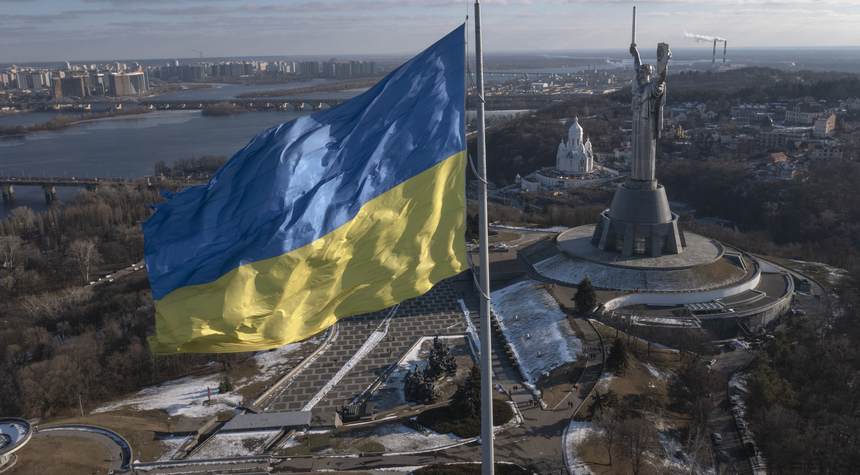He was a film producer and lawyer. Now he heads the Office of the President for Volodymyr Zelenskyy. As his boss makes the rounds speaking to the world to make the case to support Ukraine’s battle against Russia’s Vladimir Putin, Andriy Yermak fills the information gaps, giving interviews to news organizations.
In the last twenty-four hours, Mr. Yermak has been busy talking about finding a negotiated end to the war. He’s given interviews to the Times of Israel, where he postulated that Israel could be the host nation for negotiations between Ukraine and Russia. Israel’s Prime Minister Naftali Bennett has been one of the world leaders who has managed to keep talking substantively with both Kyiv and Moscow. Mr. Yermak, who like Zelenskyy is also Jewish, has made special mention that Ukraine appreciates the assistance of Israel, including the cooperation of its world-class intelligence service to the process.
Mr. Yermak appeared in a one-hour interview on Friday, March 25th with the Atlantic Council, where he continued to spread the word of Ukraine’s negotiating position.
He began with a prepared speech, where he gave a laundry list of asks from the West for additional military aid. Questioned on this by former Ambassador John Herbst, Yermak was forthright that for Ukraine, the situation remains daunting. While Russia’s first invasion attempt is faltering, he does not pull punches that Ukraine realizes Russia is a much larger power. Yermak notes that Russia is capable of assembling reserves and coming back to try again. Given that Russia has crossed the line to siegecraft targeting civilians, there is a clear sense of urgency in his voice.
Yermak states that Ukraine needs more military supplies, including advanced systems beyond the transfer of old, Soviet-era warehouse stocks, to prevail. He does state that if NATO supplies these weapons, Ukraine believes they can win the war against the Russians.
This is, of course, about keeping Ukraine viable as a counterparty in a direct negotiation across the table from the Russians. In this regard, Mr. Yermak reports that talks, which are now happening on a continuous basis, have progressed beyond listening to demand ultimatums from the Russians to more substantive points. He describes Ukraine’s view of the moment as “cautiously optimistic.”
He notes that Ukraine is realistic that the war has created operational realities that must be resolved. The first sticky point is the definition of Ukraine’s position with the West. This seems to be steadily gravitating towards a neutral Ukraine that can be an economic member of the European Union, but not an alliance member of NATO. Think Casablanca the size of Texas. This is probably something that everyone will soon buy into.
The second sticky point is the withdrawal of Russian forces: where’s the line? As noted in Mr. Yermak’s interview with Axios, Russia says it wants Crimea and the breakaway territories. Ukraine wants them back. This is an issue that’s been simmering since 2014, and it’s not going away soon. The desires of both sides are presently irreconcilable. Whoever facilitates this portion of the negotiation must find a way to get the two sides back to some holding pattern where neither gets what it wants, but both believe there is a path to achieve what they need in the long term. This one’s not easy. It’s “Getting to Yes” on the same scale as Begin and Sadat. It may require both sides to agree to make disputed territories like Crimea and Donbas the world’s next security guarantee protectorate, where neither party takes claim for some time. In this regard, Mr. Yermak may be onto something in noting that the Israelis have some history dealing in such difficult matters.
This brings up the third sticky point in the negotiations. Wherever the lines are drawn, who guarantees that both parties honor the line after the shooting stops? The Ukrainians have proposed the five permanent UN Security Council member states, formally China, France, the United Kingdom, the United States, and the Soviet Union; along with Germany, Turkey, Canada, and Israel as guarantors, and are open to adding more countries. Mr. Yermak added Italy to the list of willing guarantors at the Atlantic Council interview and added that Ukraine would love to see countries like India and Japan also be part of an international coalition of peacekeepers. Both sides recognize the need for this. Russia just doesn’t want the guarantor to be NATO. The negotiators are shopping for volunteers.
Where will this go? Now, it’s all hopeful talk. The diplomatic objective is to lay the groundwork to create conditions for an eventual face-to-face meeting between Putin and Zelensky. There’s urgency on both sides. Ukraine won’t last forever. Neither will the domestic spin Russia is doing to cover up how badly the “special military operation” went wrong.

